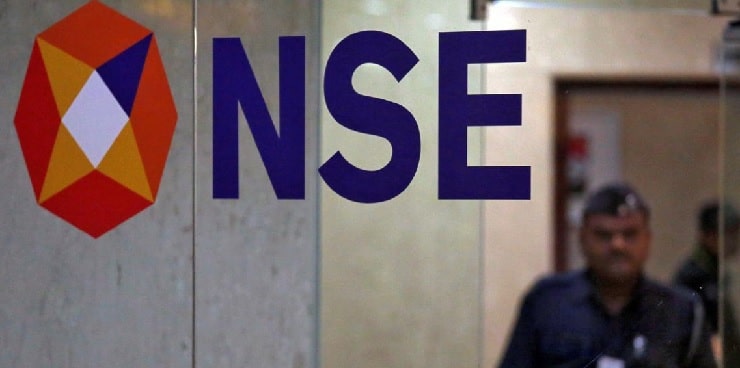What’s in today’s article?
- Why in news?
- Dabba trading
- What is ‘dabba trading’?
- Where does it become particularly problematic?
Why in news?
- In the past week, the National Stock Exchange (NSE) issued a string of notices naming entities involved in dabba trading.
- The bourse cautioned retail investors to not subscribe (or invest) using any of these products offering indicative/assured/guaranteed returns in the stock market as they are prohibited by law.
Dabba trading
What is ‘dabba trading’?
- About
- Dabba (box) trading refers to informal trading that takes place outside the purview of the stock exchanges.
- In this form of trading, brokers execute trades for clients without placing them on stock exchanges.
- Instead, the brokers maintain their own trading books or ‘dabba’ and settle trades with clients outside the exchange.
- Traders bet on stock price movements without incurring a real transaction to take physical ownership of a particular stock as is done in an exchange.
- In simple words, it is gambling centred around stock price movements.
- Example
- An investor places a bet on a stock at a price point, say ₹1,000. If the price point rose to ₹1,500, he/she would make a gain of ₹500.
- However, if the price point falls to ₹900, the investor would have to pay the difference to the dabba broker.
- Thus, it could be concluded that the broker’s profit equates the investor’s loss and vice-versa.
- Features
- The primary purpose of such trades is to stay outside the purview of the regulatory mechanism.
- These transactions are facilitated using cash and the mechanism is operated using unrecognised software terminals.
- Other than this, it could also be facilitated using informal or kaccha (rough) records, sauda (transaction) books, challans, DD receipts, cash receipts alongside bills/contract notes as proof of trading.
- Legal provisions
- ‘Dabba trading’ is recognised as an offence under Section 23(1) of the Securities Contracts (Regulation) Act (SCRA), 1956.
- Upon conviction, can invite imprisonment for a term extending up to 10 years or a fine up to ₹25 crore, or both.
Where does it become particularly problematic?
- Escape taxation
- Since there are no proper records of income or gain, it helps dabba traders escape taxation.
- They would not have to pay the Commodity Transaction Tax (CTT) or the Securities Transaction Tax (STT) on their transactions.
- CTT is a tax levied by the Indian government on certain commodity futures contracts traded on commodity exchanges in India.
- STT is a tax levied on certain securities transactions, including the sale and purchase of equities, derivatives, equity-oriented mutual funds, and exchange-traded funds (ETFs).
- Risk of entity becoming insolvent or bankrupt
- The primary risk entails the possibility that the broker defaults in paying the investor or the entity becomes insolvent or bankrupt.
- Outside the regulatory framework
- Being outside the regulatory purview implies that investors are without:
- formal provisions for investor protection,
- dispute resolution mechanisms and grievance redressal mechanisms that are available within an exchange.
- Clients, on entering the dabba ecosystem, were harassed by the broker’s ‘recovery agents’ for default payments and refused payments upon profit.
- Being outside the regulatory purview implies that investors are without:
- Encourage the growth of black money
- Since all activities are facilitated using cash, and without any auditable records, it could potentially encourage the growth of ‘black money’ alongside perpetuating a parallel economy.
- This could potentially translate to risks entailing money laundering and criminal activities.
Q1) What is Securities Transaction Tax (STT)?
Securities Transaction Tax (STT) is a tax levied by the Indian government on certain securities transactions, including the sale and purchase of equities, derivatives, equity-oriented mutual funds, and exchange-traded funds (ETFs). The tax was introduced in 2004 and is aimed at helping the government raise revenue and regulate the securities market in India.
Q2) What is National Stock Exchange (NSE)?
The National Stock Exchange (NSE) is a leading stock exchange located in Mumbai, India. It was established in 1992 and became the first electronic exchange in India. The NSE offers a platform for trading in equities, equity derivatives, debt instruments, and currency derivatives. The NSE is a highly automated electronic exchange that uses cutting-edge technology to provide fast, transparent, and efficient trading. It offers trading in a wide range of securities, including stocks, mutual funds, exchange-traded funds (ETFs), and bonds.
Source: Explained | What is ‘Dabba trading’ and how does it affect the economy?
Last updated on June, 2025
→ UPSC Notification 2025 was released on 22nd January 2025.
→ UPSC Prelims Result 2025 is out now for the CSE held on 25 May 2025.
→ UPSC Prelims Question Paper 2025 and Unofficial Prelims Answer Key 2025 are available now.
→ UPSC Calendar 2026 is released on 15th May, 2025.
→ The UPSC Vacancy 2025 were released 1129, out of which 979 were for UPSC CSE and remaining 150 are for UPSC IFoS.
→ UPSC Mains 2025 will be conducted on 22nd August 2025.
→ UPSC Prelims 2026 will be conducted on 24th May, 2026 & UPSC Mains 2026 will be conducted on 21st August 2026.
→ The UPSC Selection Process is of 3 stages-Prelims, Mains and Interview.
→ UPSC Result 2024 is released with latest UPSC Marksheet 2024. Check Now!
→ UPSC Toppers List 2024 is released now. Shakti Dubey is UPSC AIR 1 2024 Topper.
→ Also check Best IAS Coaching in Delhi
























